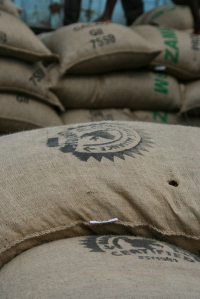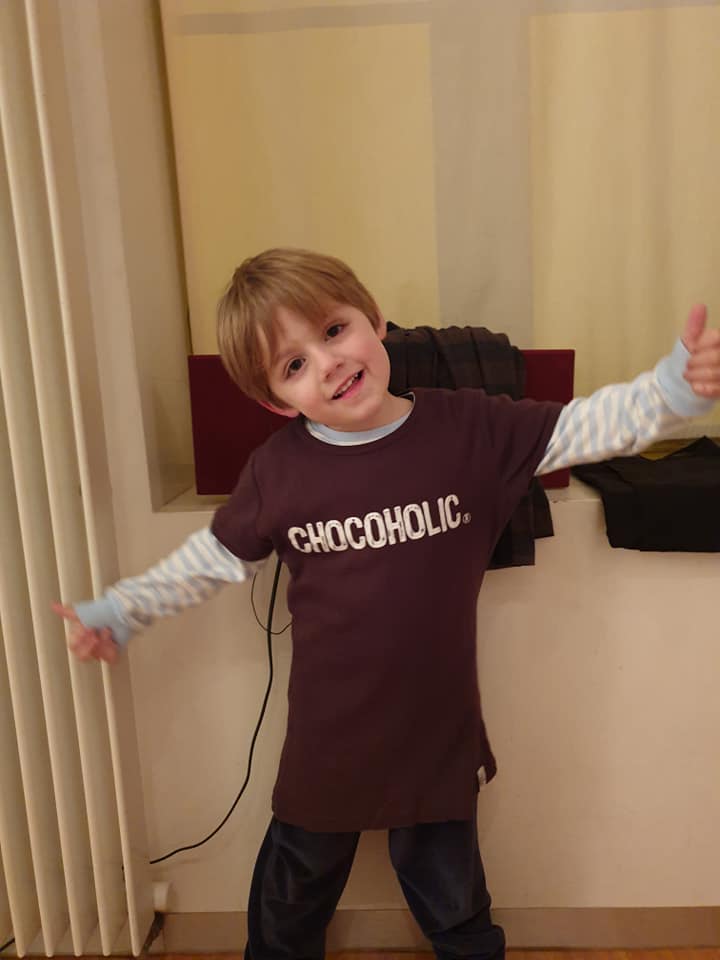How can you speak of a Dutch knowledge base in a sector that is inherently international?

Finca La Amistad Costa Rica
The Netherlands play an important role in the international cocoa sector. Amsterdam is the biggest coca harbor in the world; annually a staggering 600,000 tonnes is beeing imported from cocoa producing countries, such as Ghana and Ivory Coast. At CWT Sitos, a warehousing company in the Port of Amsterdam, 150,000 tonnes of cocoa is stored, totalling 5% of world cocoa production (NRC Handelsblad 27Th of February 2006). The total amount of cocoa that passe through the harbour is 20% of world cocoa production, and the bulk of this percentage is processed into semifinished products in the Zaan area, with Cargill and ADM as the major players. …
The large economic importance of cocoa for the Dutch economy, and the prominent role of the Dutch in the international cocoa chain, demands a strong knowledge infrastructure, one able to support the dynamic character of the cocoa cluster. According to a study (2007), despite the Netherlands important position, the Dutch know-how is evaporating. There is no knowledge infrastructure that supports knowledge development specifically on cocoa. Three questions pop-up: first, is this really the case? Second, is this a problem, considering the fact that the cocoa sector is inherently international? And third, what is the Dutch position in the international cocoa chain in terms of generation and sharing of knowledge connected to sustainable cocoa? This last question is important, as the development of sustainable cocoa chains demands not only knowledge on cocoa, but also on sustainability issues and their mutual relationship.
Dutch companies occupy a strong position on the international market, where they import and export, produce and process a wide range of agriculture products. At the same time, the Netherlands serves as a major trading and logistical hub in Europe and as a sresult is often dubbed the Gateway to Europe. These large trade-flows primarly pass through the ports of Amsterdam and Rotterdam. The combination of the Dutch playing a central position in the international trade and the trend towards developing sustainable value chains helped the Dutch build a wide range of experiences with sustainability initiatives in a number of agriculture value chains. Another consequence is that the Dutch accumulate a lot of experience with developing certification schemes and creating transparency for consumers. The presence of certifying agents (such as, UTZ CERTIFIED and Max Havelaar) and the rapid development of organic sector have also contributed to strengthening the Dutch position as frontrunners in the sustainability debate.

Finca La Amistad
Where is the knowledge based?
The cocoa chain is an international production chain, with flows of money and cocoa streaming back and forth between businesse in different countries. Moreover, an ever increasing number of these businesse are multinational enterprises that cannot be pinned down to one country; they have offices, factories or warehouses all over the world. … Many Dutch companies are foreign owned and certain activities, like research and development, have been transferred out of the Netherlands to other countries. With regard to the availability, development and exchange of knowledge this means that:
- strategic decisions about research are often taken abroad;
- research and development centres are aminly based abroad;
- the people with knowledge tend to depart for those locations with concentrated R&D.
There are very few Dutch players left. The Americans own De Zaan and Gerkens, Besndorp has become Belgium/French because it is owned by Barry Callebaut. De Baronie is the only independent chocolate factory, Verkade is English, and Droste is German. The Dutch chocolate industry is minute. The cocoa industry is present in the Netherlands, but if you look at those who make decisions and show the most activity, you see that they are located in the United States and Switzerland, not the Netherlands, not the head offices or research departments. So, in terms of logistics and processing the Netherlands is an important country but not in knowledge development and decision making. …
Although traditionally the private sector has played and continues to play a key role in knowledge development on commedies, other actors and supporters are also involved. For example the goverment also plays a role in maintaining private R&D facilities, which is to the benefit of surrounding SMEs and important in terms of employment. Knowledge on sustainable value chains does not only concern knowledge of ‘commodity chains’; it also connected to ‘Knowledge chains’ – from preschool education and lifelong learning to excellent scientific research and innovative enterprise. …
The Netherlands has a vibrant multistakeholders cocoa community, and the Dutch goverment is heavily involved in stimulating its development. For example, the Ministry of EL&I coordinates a multistakeholder platform, the National Cocoa Stakeholder Meetings (or ChocoWorkGroup), which brings together an ever growing number of Dutch representatives from industry, goverments, banks, NGOs, consultants, knowledge institutes, the Dutch Sustainable trade Initiatives (Initiatief Duurzaam Handel -IDH) and others. These stakeholders are firmly committed to the realisation of sustainable cocoa consumption in the Netherlands. This platform was created in response to the first Round Table for a Sustainable Cocoa Economy, which was held in Ghana. Meetings in the Netherlands are held on a regular basis and are attended by the diffrent stakeholders. In response to the second RT meeting, which took place in Trinidad & Tobago in 2009, the Dutch actors involved in the cocoa sector have translated the ten key elements into a national agenda for promoting sustainable cocoa, with a twofold goal:
- To guarantee sustainable cocoa consumption within a period of 15 years.
- To deliver a significant contribution to a global sustainable cocoa economy (people, planet, profit).
In addition, the ChocoWorkGroup has drawn up a National 10 Point Plan, which includes developing a global framework for sustainable cocoa, creating support for sustainable cocoa within the European Union, and developing a basis training package for farmers. An action point to consolidate the Dutch knowledge base on sustainable cocoa is also part of this plan.

Finca La Amistad
IDH website
next time: Different roles in knowledge development
Thanks to Juan Pablo Buchert (Nahua) for the pictures.
50.819313
3.269374













